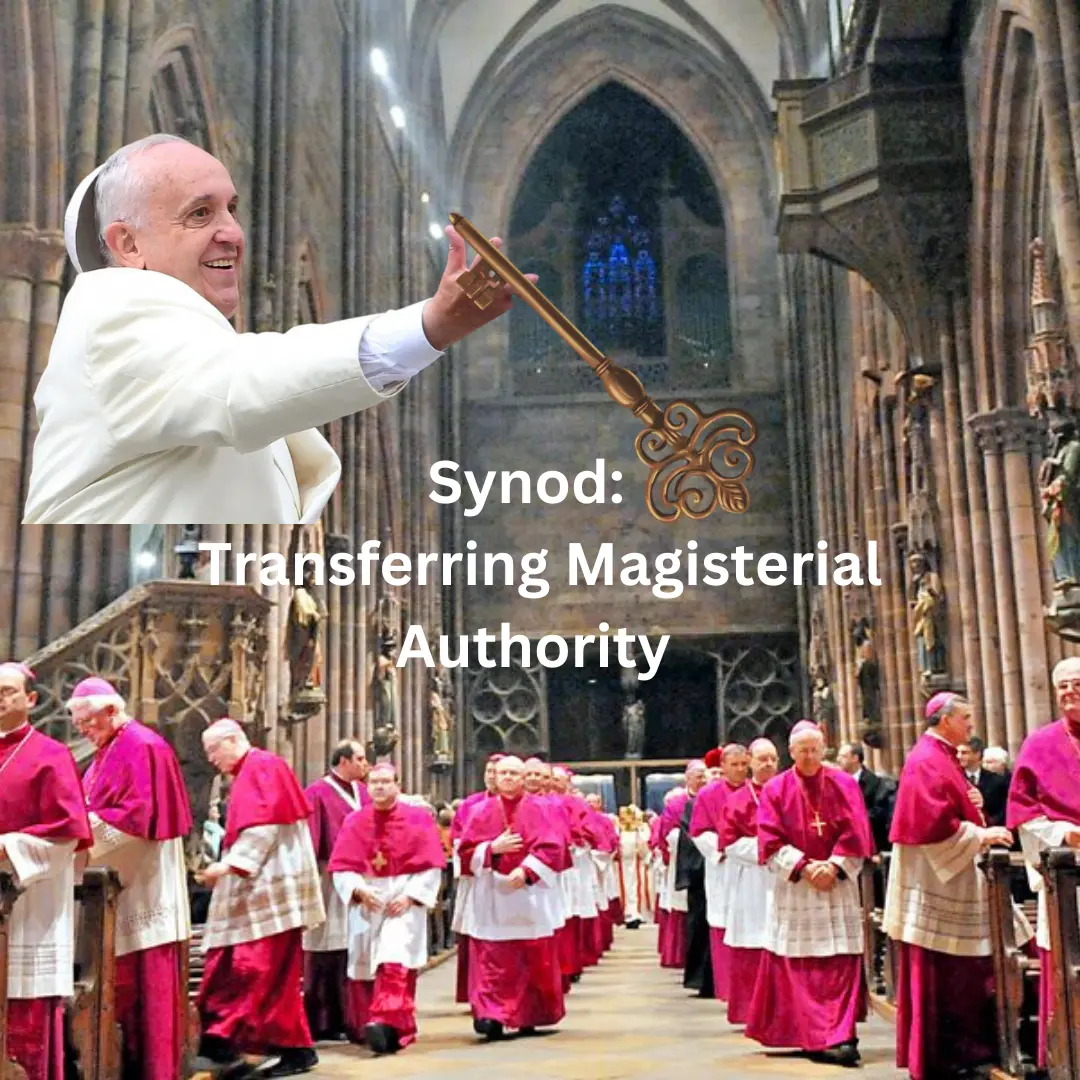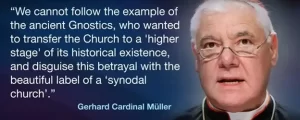
Vicki Yamasaki, Founder, Corpus Christi for Unity and Peace, CUP@corpuschristiforunityandpeace.org
Ceding Control: to give up control to another person, group or government often as a result of power or pressure.
The Synod, concluding in Rome, is attempting to upend the entire hierarchical structure of the Catholic Church. In plain terms, the Synod members are deciding whether to give bishop conferences doctrinal authority. This would transfer the power for doctrinal decisions from the papacy and Vatican to bishop conferences worldwide.
Consider this: the Conference of German Bishops, who support same-sex marriages and transgender unions, would have the doctrinal authority to implement these changes.
This shift is already evident. For example, the implementation of Fiducia Supplican (same-sex blessings) has seen varied responses: African bishops refused to adopt it, German bishops embraced it, the USCCB supported it, and the Ukrainian Church rejected it as blasphemous. The Vatican has allowed this to unfold, resulting in a patchwork of doctrinal application globally, within the United States, and even within dioceses.
Officially transferring authority to bishops’ conferences could be the final straw that breaks the magisterial back. This move would create contradictory bodies with different doctrinal positions, each applying what fits their socio-cultural context. How would this differ from Protestantism? It would essentially dismantle the Magisterial leg of the Catholic Church.
Cardinal Müller recently renewed his criticism, stating that the synod is not a synod of bishops due to the presence of lay voters and warned against a “post-Catholic Church.”
Cardinal Müller issued a very strong statement:

To read Cardinal Müller’s entire statement (translated to English) – click here.
Since when have we decided to remove the third leg of the three-legged stool that governs the Church? Sacred Scripture, Sacred Tradition, and the Magisterium together faithfully transmit the full deposit of faith revealed by Christ and entrusted to the Church. If one leg is removed, the stool collapses into disunity and chaos, as seen throughout Protestant history. If the pope and the Vatican cede control of doctrinal decisions to bishop conferences, we lose the hierarchical authority established by the One True Church.
“And I tell you, you are Peter, and on this rock I will build my church, and the powers of death shall not prevail against it”. Matthew 16:18
This passage and Matthew 28:16-20 from Sacred Scripture is key to understanding the vital importance of the papacy and apostolic succession. The pope and the bishops, as the present-day successors of the Apostles, are the magisterium. They have the responsibility to see that the sacred deposit of the faith left to us by Christ and handed on through Tradition and Scripture is preserved, defended, and handed on in its fullness to all generations until the end of time.
Sacred Scripture, Sacred Tradition and the Magisterium together are joined in faithfully transmitting to all generations the full and entire deposit of faith revealed by Christ and entrusted to the Church. They are the three-legged stool. If all three legs are intact, the stool is on a sound foundation. However, if you remove one of these legs the stool collapses into disunity and chaos. This has been seen throughout the history of Protestantism which has reduced God’s revelation to the Bible alone, ignoring the papacy and magisterial importance. If the pope and the Vatican seed control of doctrinal decisions to bishop conferences to bishop conferences, we no longer have hierarchal authority as was originally created by the One True Church.
There has been significant pushback from Synod members on this proposal. Some argue that this move is a strategic maneuver to make the Church more democratic. However, the Church as created by Jesus himself was designed to be hierarchical, a point Pope Benedict XVI, then Cardinal Ratzinger, understood when he opposed ceding control to bishop conferences.
What have we come to when synodality has turned into ecumenical Protestantism?
